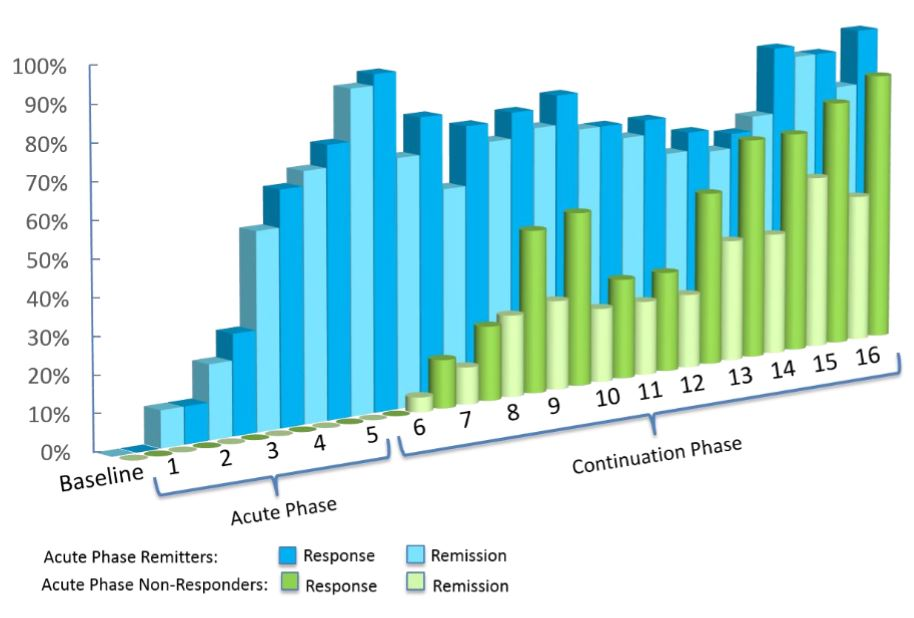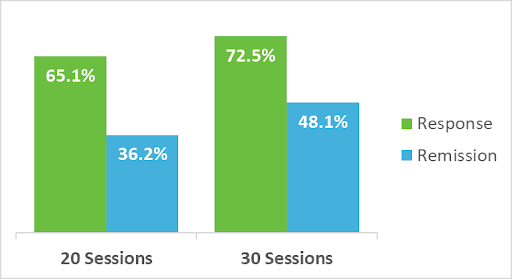In 2008, Food and Drug Administration (FDA) approved the Transcranial Magnetic Stimulation(TMS) figure-8 coil for the treatment of depression, and in 2018, FDA approved the deep transcranial magnetic stimulation (DTMS) H1 coil jointly developed by Yingchi and BrainsWay for the treatment of treatment-resistant depression. Two years later, the FDA approved the H1 coil for the treatment of anxiety.
In addition, a large number of randomized double-blind clinical studies have demonstrated the high remission and cure rates of Transcranial Magnetic Stimulation(TMS) and DTMS in the treatment of depression.
In 2018, the world's top journal The Lancet published a Transcranial Magnetic Stimulation(TMS) treatment effect on 414 patients with treatment-resistant depression from three Canadian hospitals, and gave them two treatment protocols: 10Hz high frequency rTMS and iTBS. After a one-month treatment, the patient's depressive symptoms were significantly improved, and the 3-month follow-up also confirmed the long-term effectiveness of Transcranial Magnetic Stimulation(TMS) treatment [1].

In 2015, World Psychiatry published a clinical data from 212 patients with treatment-resistant depression from 20 multi-centers to evaluate the clinical effect of DTMS in the treatment of treatment-resistant depression. The FDA-approved DTMS protocol was used in the treatment. After one course of treatment (20 times, 4 weeks), more than 1/3 of the patients had remission. And after 30 treatments, the remission rate reached 51%, and the response rate reached 75%[2].

And studies have shown that the more number of treatments, the higher remission rate of the patient's condition, and the better treatment effect.

[1]Blumberger D M, Vila-Rodriguez F, Thorpe K E, et al. Effectiveness of theta burst versus high-frequency repetitive transcranial magnetic stimulation in patients with depression (THREE-D): a randomised non-inferiority trial[J]. The Lancet, 2018, 391(10131): 1683-1692.
[2]Levkovitz Y, Isserles M, Padberg F, et al. Efficacy and safety of deep transcranial magnetic stimulation for major depression: a prospective multicenter randomized controlled trial[J]. World Psychiatry, 2015, 14(1): 64-73.